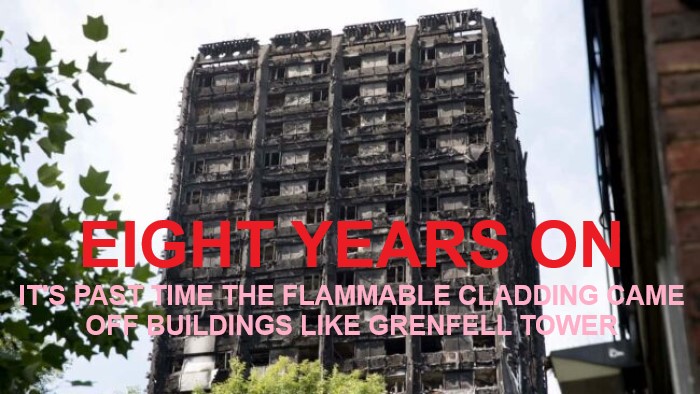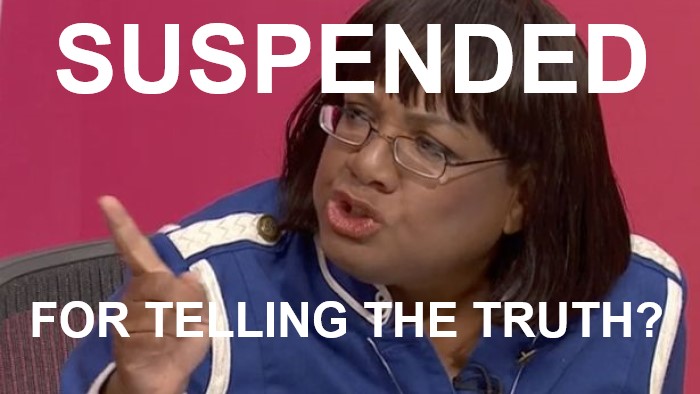SEX – here’s why you’re not having enough

Share this post:
It’s one of the great, unspoken ironies of modern British politics: the very people howling the loudest about immigration are the ones whose cherished economic ideology made it absolutely necessary.
If you’re furious that the UK “has to import foreign labour,” don’t blame migrants — blame neoliberalism.
This isn’t about some sudden loss of cultural values or personal “lifestyle choices.”
The reason people aren’t having kids isn’t because they’ve all decided to spend their lives on TikTok, nor because women have all turned into career-obsessed “cat ladies.”
The truth is far more structural and far more damning.
According to a July 2025 study from the Institute of Labour Economics entitled An Economic Theory of Sexual Exchanges and Human Capital, declining fertility isn’t random — it’s the predictable result of economic conditions that make stable relationships, intimacy, and childbearing harder, riskier, and less rewarding.
And what’s the biggest driver? Economic insecurity — the kind that has been deliberately manufactured by four decades of neoliberal economic policy.
You can’t have babies if you can’t afford a flat
The UK’s birth rate is collapsing, and it’s no wonder.
Decades of privatisation, deregulation, austerity, and wage suppression have made life unliveable for millions.
Real wages are stagnant.
Housing is unaffordable.
Energy bills are extortionate.
Childcare costs rival a second rent.
The NHS is drowning, with more than seven million people on waiting lists.
What kind of psychopath would look at this situation and say, “Yes, now’s the perfect time to bring a child into the world”?
If you don’t know where you’ll be living next year; if your employment contract ends in six months; if you can’t get a GP appointment or afford a dental check-up, it’s not just parenthood that feels out of reach — it’s intimacy itself.
Stress, anxiety, and economic pressure kill relationships.
They kill libido.
They literally make it difficult for people to have sex.
Let’s get a little more involved…
According to the research, sex, intimacy, and fertility are shaped by rational economic decisions.
It suggests that sexual behaviour and fertility as outcomes of time allocation between:
-
Paid work (including sex work),
-
Paid sex,
-
Unpaid sex (e.g., in stable relationships),
-
and consumption.
These decisions depend on:
-
-
Income and wealth,
-
Wage opportunities,
-
Gender norms,
-
Relational (social/emotional) skills,
-
Technological shifts (e.g., digital sex),
-
and social stigma.
-
Digital platforms have lowered the cost (emotional, logistical, reputational) of accessing sexual gratification through virtual means.
This leads to less investment in unpaid intimacy – meaning less sex in stable relationships, and this in turn means fewer children
These changes are not biological or moral — they’re economic reallocations of time and effort.
Moving on from this, we find that income and job security determine whether people seek or sell sex.
People with low income or unstable jobs are more likely to sell sex (especially women in gendered labour markets).
Those with higher income are more likely to buy sex, especially in places with lower prices (e.g. sex tourism).
This implies that inequality, job precarity, and economic shocks reshape sexual markets.
So relational skills — essential for what the research calls unpaid intimacy — are eroding.
Economic and technological conditions (social media, working from home, pandemic effects) have reduced opportunities to develop “relational skills”.
This reduces people’s ability to form and maintain relationships, especially unpaid ones like marriage.
Result: even when people want stable relationships, they’re less able to find and keep them — leading to declining fertility.
People aren’t choosing not to have kids — they’ve been economically cornered
This new research confirms what many have suspected: fertility rates are dropping not because people won’t, but because they can’t.
And what little sexual activity does happen often doesn’t lead to babies — because it’s casual, unstable, or fully decoupled from long-term plans.
Why? Because those plans no longer feel viable.
The same economic squeeze that turns people into overworked, underpaid renters has made traditional family structures harder to achieve.
Neoliberalism devalued human stability and rewarded financial speculation.
It’s no surprise that fewer people want, or can afford, to build families in such a climate.
The great replacement… by market forces
Here’s the kicker: the very system that destroyed the birth rate now depends on immigrants to keep the economy running.
The Right loves to push paranoid fantasies about a “great replacement,” but the reality is far simpler and more damning: the UK is importing labour because successive neoliberal governments gutted the conditions that once made domestic population growth possible.
You want fruit picked, care homes staffed, lorries driven, NHS wards run?
Someone has to do it — and since the country has made it nearly impossible for native-born Brits to afford kids, that someone increasingly comes from abroad.
And what do the right-wing press blame for this?
Not the policies that created a precarious, over-financialised economy.
Not the parties that underfunded the NHS, gutted housing, and slashed social safety nets.
No — they blame migrant workers.
They blame the very people who are propping up the system that neoliberalism broke.
Neoliberalism’s dead end
This is the final absurdity of the neoliberal project: it dismantled the social contract, drove birth rates into the floor, made stable families a luxury, and now blames outsiders for the predictable consequences of its own success.
It’s a death spiral of hypocrisy.
The solution is not more racism, more nationalism, or more “incentives” to get people breeding.
The solution is to undo the economic model that’s brought us here.
-
Guarantee secure, affordable housing.
-
Fund public services properly.
-
Provide free or low-cost childcare.
-
Raise wages.
-
Give people enough certainty and hope that the future seems worth investing in.
If we don’t, the UK will continue to rely on immigration — and frankly, that’s not a bad thing.
What is bad is demonising the very people we need, while refusing to fix the system that made them necessary.
So the next time you hear a right-wing pundit complain about immigrants “taking over,” remind them who hollowed out this country in the first place.
It wasn’t immigrants.
It was neoliberalism.
And if they still don’t get it, perhaps they should ask themselves why the economy is bursting with zero-hours contracts — but not with babies.
Share this post:
Deadline set for unsafe cladding removal from buildings – but time is running out

Share this post:
The UK government has announced a new legislative crackdown aimed at accelerating the removal of unsafe cladding from thousands of buildings across England.
Under the Remediation Acceleration Plan, landlords of buildings over 18 metres must complete cladding removal by the end of 2029, with those managing buildings between 11 and 18 metres required to finish by 2031.
Failure to comply could result in unlimited fines or imprisonment.
This announcement comes alongside a commitment of more than £1 billion in government funding, aimed at supporting social landlords and private building owners alike.
New powers will also allow government bodies such as Homes England and local authorities to step in and remediate buildings if landlords fail to act.
Housing Secretary Angela Rayner described the plan as “a clear message” to those responsible for unsafe buildings: “Act now or face the consequences.”
The legislation is intended to restore confidence in building safety and prevent future tragedies like the Grenfell Tower fire of 2017.
A long-awaited step – but is it enough?
While the announcement marks progress, many affected groups remain deeply concerned that the wait has already taken a heavy toll on residents.
Campaign groups such as End Our Cladding Scandal have welcomed the funding but criticized the plan’s extended deadlines and what they see as bureaucratic delays.
“Residents have already waited far too long to live safely in their homes,” said a spokesperson.
“The government’s timelines still leave thousands exposed to dangerous conditions for years to come.”
The emotional and financial impact on residents has been devastating.
A survey from the UK Cladding Action Group found that 90 per cent of affected leaseholders have experienced worsening mental health due to the ongoing crisis, with nearly a quarter reporting suicidal thoughts or self-harm.
The protracted delays and uncertainty have caused prolonged anxiety, financial strain, and displacement for many families.
Scepticism from oversight bodies
Parliament’s Public Accounts Committee has also expressed scepticism about the government’s approach, noting that eight years after Grenfell, it remains unclear exactly how many buildings require remediation, what the final costs will be, or how long the process will take.
The committee has called for clearer accountability and faster action.
Mixed responses from housing providers
Social landlords and housing associations have responded differently to the government’s plans.
Some are moving ahead with remediation using internal resources, unwilling to wait for further government guidance.
Others have opted for caution, awaiting detailed government tests before starting work.
Local authorities will benefit from funding and new regulatory powers, aiming to tailor remediation efforts locally and provide more support for affected tenants.
Looking ahead
The government’s announcement also includes measures to protect leaseholders from costly interim safety measures and a new Building Safety Levy expected to raise £3.4 billion over the next decade to help fund remediation.
Despite these efforts, for many residents the question remains: why has it taken this long, and why must they continue to wait in unsafe buildings while officials negotiate funding and deadlines?
As one resident put it, “We don’t just need promises — we need action now.
Every day we wait is another day living in fear.”
Share this post:
Thames Water’s toxic legacy: pollution, profit, and privatisation failures

Share this post:
The Environment Agency’s latest report lays bare what millions of customers have long suspected: Thames Water is in crisis, racking up pollution incidents at an alarming rate while its infrastructure crumbles and water supplies dwindle.
But this isn’t just a tale of misfortune — it is a damning indictment of a privatised water industry that has prioritised shareholder profits over public and environmental health, and a regulator that has failed to hold them to account.
Pollution incidents surge as the system collapses
In 2024 alone, serious pollution incidents across England’s water companies jumped 60 per cent — with Thames Water responsible for nearly half (33 of 75).
This rise in sewage spills and toxic discharges is no accident or “weather-related” inevitability; it is the predictable outcome of years of under-investment, asset neglect, and a company drowning in debt and mismanagement.
The report confirms what environmental campaigners and communities have long warned: Thames Water is failing to meet its basic legal duties to protect the environment – spectacularly.
Pipes carrying untreated wastewater are spilling into protected rivers and bathing waters, destroying habitats and endangering public health.
The company’s response remains woefully inadequate, dragging its feet while the pollution piles up.
Debt, dividends, and a company looted for profit
What makes this failure so infuriating is that it did not have to be this way.
Thames Water was privatised in 1989 and, since then, has been a prime example of privatisation’s catastrophic failures.
Rather than reinvesting revenues into crumbling Victorian infrastructure, the company has funnelled billions into shareholder dividends and executive bonuses.
The consequence: sewage systems and pipes built a century ago are breaking down, leaking sewage with increasing frequency.
Financially, Thames Water is in deep trouble.
Its debt ballooned from £17 billion earlier this year to a staggering £23 billion today — a rise so rapid it highlights systemic mismanagement.
Last year alone, shareholders extracted more than £7 billion in dividends, leaving the company with less and less to maintain and upgrade its crumbling network.
Even private equity investors, infamous for chasing profits in risky ventures, have pulled out, refusing to rescue a company they now see as a toxic asset.
This leaves Thames Water floundering, facing insolvency and prompting desperate calls for government bailouts — that will ultimately fall on the shoulders of customers and taxpayers.
A regulator asleep at the wheel
If Thames Water’s collapse is one part of the story, the failure of Ofwat — the water industry regulator — to prevent it is another scandal entirely.
For years, Ofwat has prioritised “market confidence” and the interests of investors over enforcing strong environmental protections or safeguarding public interests.
Despite fining Thames Water £123 million recently, these penalties are mere drops in an ocean compared to the scale of environmental damage and financial mismanagement.
Worse, Ofwat’s weak oversight allowed debt-fuelled dividends to continue while infrastructure deteriorated — a textbook case of regulatory capture and failure.
The hosepipe ban is a symbol of broken promises
Now, Thames Water customers face yet another indignity: a hosepipe ban set to start next Tuesday (July 22), affecting millions in the south and east of England.
This ban is not just about dry weather — it is a stark symbol of a company that has failed to secure resilient water supplies for its customers.
It reflects years of neglect, mismanagement, and a regulator unwilling or unable to enforce change.
Renationalisation: the only path forward
The relentless rise in pollution, the debt crisis, the inability to maintain water supplies, and the regulator’s failings all point to one unavoidable conclusion: the water industry must be taken back into public ownership.
Calls for renationalisation are growing louder, fuelled by public anger and frustration.
Campaigns like We Own It and petitions signed by hundreds of thousands demand the government act decisively to stop bailing out failing private water companies and instead create a transparent, accountable, publicly owned water system.
Renationalisation isn’t just about reversing privatisation — it is about rebuilding water infrastructure with long-term public interest at its heart, ensuring the environment is protected and communities receive the reliable water services they deserve.
Government inaction risks ecological and social disaster
Yet despite the mounting crisis, government ministers remain evasive, refusing to back meaningful reform or renationalisation.
Instead, they cling to a broken regulatory model focused on protecting investors, leaving the public and environment to suffer the consequences.
The Environment Agency’s new powers and increased funding offer a glimmer of hope, but enforcement alone won’t fix a fundamentally broken system designed to prioritise profit over people and planet.
The bottom line
Thames Water is not a victim of circumstance — it is a product of decades of bad decisions by executives chasing profit, regulators looking the other way, and governments refusing to step in.
The surge in pollution, the looming hosepipe ban, and the £23 billion debt crisis are symptoms of a deeper malaise that will only worsen unless water services are taken out of private hands.
It’s time for the government to listen to the public, halt the endless bailouts, and commit to full re-nationalisation with a clear plan for real reform and investment.
The water flowing through our taps, the rivers that surround our communities, and the very environment we depend on demand nothing less.
Share this post:
Diane Abbott is suspended again as Labour’s war on the Left heats up

Share this post:
Keir Starmer has reignited Labour’s internal war by suspending Diane Abbott – again – this time over remarks she made in a BBC interview about different types of racism.
Abbott, the UK’s first Black female MP and a veteran of the Labour left, had been re-admitted to the party immediately before last year’s general election, after a lengthy suspension over a letter she sent to The Observer in 2023.
That letter attempted to draw distinctions between racism based on skin colour and other forms of prejudice – remarks for which she promptly apologised, saying they were sent in error.
Now, after a July 2025 interview on BBC Radio 4’s Reflections, in which she reasserted that racism manifests differently for different communities, she has been suspended once again — just over a year into Labour’s term in government.
Here’s what Abbott actually said:
“Clearly, there must be a difference between racism which is about colour and other types of racism, because you can see a Traveller or a Jewish person walking down the street; you don’t know. You don’t know unless you stop to speak to them or you’re in a meeting with them. But if you see a Black person walking down the street, you see straight away that they’re Black. They are different types of racism.”
And:
“I just think that it’s silly to try and claim that racism which is about skin colour is the same as other types of racism.”
These comments, clearly intended as a discussion about how racism can operate differently depending on visible or perceived identity, have been seized upon as justification to remove the whip again.
So what is Labour’s argument this time?
According to the BBC’s political editor Chris Mason, the justification rests on the fact that Abbott said she had “no regrets” about the original 2023 letter, even though she now clearly defines anti-Semitism as racism — a change in language from her original statement.
Mason reports:
“She appeared to equate antisemitism with the prejudice experienced by people with ginger hair.”
But this was in her original letter. Mason himself admits that she has modified the way she describes her views:
“She added: ‘Clearly there must be a difference between racism which is about colour and other types of racism.’ This is because, she said, someone’s skin colour is instantly, visibly noticeable, whereas being Jewish, for instance, is not. Her language has changed since that letter in 2023 – she now describes anti_Semitism as racism, rather than a prejudice. And she again condemned anti-Semitism.”
But Mason concludes that because Abbott said she does not regret the original letter, the party had to act “for consistency.”
Let’s be blunt: this is nonsense.
Abbott’s point is a distinction in experience, not in validity or severity.
She never denied that anti-Semitism is racism.
In fact, she has gone out of her way — again and again — to say that it is, and to say that she condemns it without reservation:
“Of course [I condemn anti-Semitism], and I do get a bit weary of people trying to pin the anti-Semitic label on me because I’ve spent a lifetime fighting racism of all kinds and in particular fighting anti-Semitism, partly because of the nature of my constituency.”
Her political ally John McDonnell put it simply:
“Before people, including Labour Party spokespersons, comment or decide upon Diane Abbott’s fate, could I suggest that they actually listen to Diane’s interview on BBC Reflections in which she forthrightly condemns anti-Semitism and discusses the different forms of racism.”
Deputy Prime Minister Angela Rayner, however, criticised Abbott for appearing to double down on the content of the original letter, despite her revised language and clear rejection of antisemitism.
This all points to one conclusion: Labour under Keir Starmer is not interested in nuance, context or fairness.
It is interested in control. And in purging dissenting voices.
Last year, the government came under fire for suspending or sacking Labour MPs who voted against maintaining the Tories’ cruel two-child benefit cap. This very week, the government came under fire for suspending four MPs for “persistent rebellion” including over the plan to impoverish disabled people by cutting their benefit entitlements. And now Diane Abbott, one of the most senior Black voices in UK political history, has been forced out of the parliamentary party again.
What kind of message does this send?
Abbott’s interview wasn’t a defence of racism or prejudice of any kind — it was a nuanced discussion of how racism can appear in different forms.
She made it clear that she condemns anti-Semitism.
She spoke with the authority of someone who has experienced racism first-hand and fought against it for decades.
And yet — for saying something entirely reasonable — she is punished. Again.
Meanwhile, Labour’s leadership continues to welcome with open arms those who peddle cruelty against the poor, the disabled, and those fleeing war and persecution.
Labour under Starmer isn’t just indifferent to voices of conscience. It is actively silencing them.
As Abbott herself said in response to her new suspension:
“It is obvious this Labour leadership wants me out. My comments in the interview were factually correct, as any fair minded person would accept.”
And she’s right.
This latest suspension doesn’t just attempt to silence a prominent anti-racist voice — it highlights something even more disturbing: the persistence of what has been called a “hierarchy of racism” inside the Labour Party itself.
This was precisely the warning sounded in the 2022 Forde Report, commissioned by Keir Starmer and then quietly buried once its findings became inconvenient. In that report, Martin Forde KC stated:
“I think part of the reason that factionalism has arisen around this is because there is a perception that different groups are treated differently.”
He was referring to the widespread belief — supported by evidence in leaked messages — that anti-Black racism, Islamophobia, and hostility to Travellers were minimised or ignored within Labour, while anti-Semitism, particularly when weaponised against the party’s left, was prioritised above all else.
In 2023, Jeremy Corbyn put it bluntly:
“The Forde Report called out the horrific sexism and racism expressed toward Diane Abbott and others among senior members of Labour Party staff who were factionally opposed to my leadership. Eight months on from the Report’s publication, it is appalling that anti-Black racism and Islamophobia are not treated seriously enough by the Party.
“There should never be a hierarchy of racism.”
But under Starmer, that is exactly what seems to have taken root.
As This Writer pointed out, quoting a Facebook comment by Gary Hutton in May 2024:
It’s noticeable that the media has repeatedly stated Diane Abbott has attended an ‘antisemitism’ course, and that’s the reason for her having the Labour whip restored.
So, it seems the issue for all in the media, the Labour Party and probably Friends of Israel, is her reference to Jewish people.
Isn’t that actually saying Irish people and Travellers are less important than Jewish people?
Isn’t that racism by these groups against Irish people and Travellers?
Yes, it is.
And it illustrates the double standards at the heart of Labour’s current disciplinary culture. Racism is not being treated as a universal scourge — it’s being selectively enforced to punish certain voices and protect others.
Diane Abbott’s suspension is not about opposing racism.
It is about power, purges, and the ongoing marginalisation of the Left.
Share this post:
The Decline and Fall of Keir Starmer: advantages squandered by hubris and revenge

Share this post:
Keir Starmer entered Downing Street in 2024 with a majority that should have heralded a new era of political stability.
Instead, just a year into his premiership, Labour’s polling has plummeted to historic lows, and the mood in the country is sour.
How did it unravel so quickly?
The answer lies not with the Tories or external shocks, but with Starmer himself.
A hollow mandate
Labour’s 2024 victory looked spectacular on the surface: a towering parliamentary majority.
But the reality beneath was sobering. Starmer secured just 9.7 million votes — fewer than Jeremy Corbyn in 2019 (10.3 million), and more than 3 million fewer than in 2017 (12.8 million).
The only reason Labour gained so many seats was the implosion of the Conservative vote, which halved from 14 million in 2019 to just 6.8 million in 2024.
Starmer’s government was built not on a popular surge but on Tory collapse and a flawed, disproportionate electoral system.
Rather than acknowledge this, he behaved as though he had an unassailable public mandate — and that arrogance was his first mistake.
An ideological purge
One of Starmer’s first major acts as Prime Minister was to expel seven Labour MPs who voted against his decision to maintain the cruel and widely reviled two-child benefit cap.
These MPs had stood up for their constituents.
Starmer punished them for it.
This set the tone for a government more interested in internal party purges than public service.
The treatment of Diane Abbott exemplifies this: suspended for more than a year over a letter for which she immediately apologised, only to be humiliated repeatedly by vague statements and shifting justifications.
The Labour leadership even lied about offering her the chance to stand, with Abbott herself having to correct the record.
The punishment of principled dissenters continued. After public backlash forced Starmer to water down his economic sanctions on pensioners and disabled people, he responded not by listening — but by lashing out.
Four MPs were sacked from the party, and three others were removed from trade envoy roles, all for opposing policies the public overwhelmingly rejected.
The message was clear: fall in line or face expulsion.
But the public was watching — and they did not like what they saw.
Unpopular policies, even more unpopular hypocrisy
Starmer’s agenda has proven toxic to voters.
He doubled down on Tory-style austerity.
He planned benefit cuts that would hurt the disabled and the elderly.
He failed to act on rampant corporate profiteering.
He refused to commit to free broadband, water nationalisation, or affordable housing.
Even symbolic measures backfired. Labour MPs were instructed to vote down a proposal to make 10 Premier League games per year available on free-to-air TV.
Meanwhile, Starmer accepted lavish hospitality from wealthy donors to watch Arsenal matches from luxury boxes.
The hypocrisy was too much for many to stomach: Starmer gets free football; you get nothing.
Obsession with erasing Corbyn
Another thread tying this government together is what critics have dubbed “Corbyn Derangement Syndrome.”
Policies seem to be driven less by strategy or principle and more by doing the opposite of what Jeremy Corbyn would have done:
- Corbyn wanted investment? Starmer keeps austerity.
- Corbyn opposed war crimes? Starmer endorses Israel’s military actions.
- Corbyn fought for the poor? Starmer punishes them.
This anti-Corbyn fixation has shaped Labour’s entire agenda, despite Corbyn no longer even being in the party.
As a result, policies with mass appeal — like nationalisation, wealth taxes, and climate investment — have been dumped in favour of pro-corporate pandering and performative cruelty.
Starmer’s Labour isn’t just uninspiring; it’s actively hostile to the values many Labour voters thought they were supporting.
Record-breaking unpopularity
The consequences of this misrule have come swiftly.
Labour’s net approval rating recently hit -54, lower than the Tories during the Partygate scandal.
Some polls suggest Labour could lose over 250 seats at the next election.
One recent survey had Labour and the emerging left-wing Corbyn-Sultana party tied at 15 per cent each.
There is now serious discussion of Labour falling to fourth or even fifth place in terms of parliamentary seats if the SNP regains momentum in Scotland.
Far from stabilising Britain, Starmer may be engineering the most spectacular political collapse in modern UK history.
A pyrrhic victory
Starmer’s short-term objective — crushing the Labour left and seizing control of the party — has been achieved.
But in doing so, he may have fatally alienated the very electorate Labour needs to survive.
The sacking of MPs for voting against cruelty, the broken pledges, the public contempt, and the defensive authoritarianism of his administration have created a political vacuum on the left.
Into that space may step a broad left-green coalition that could redraw the electoral map.
Unless Labour changes course, which seems unlikely under Starmer and Rachel Reeves, the British public may soon deliver a punishment beating of their own.
And this time, it will be Starmer who gets the sack.
- ☕ Support Vox Political on Ko-fi or donate via PayPal
- 📘 Buy our books — political analysis and satire you won’t find elsewhere
- 📨 Join the mailing list for real headlines, direct to your inbox
- 🔗 Follow us on Facebook and Twitter/X
Welcome to Vox Political – watch this first!
🎁 Get a Copy of Strong Words and Hard Times – five out of 50 have already gone!
Support independent journalism — and receive a copy of Mike Sivier’s newly re-released book.
👉 Donate £20 or more to Vox Political
and claim your copy now:
No sponsors. No billionaires. Just truth — backed by you.


